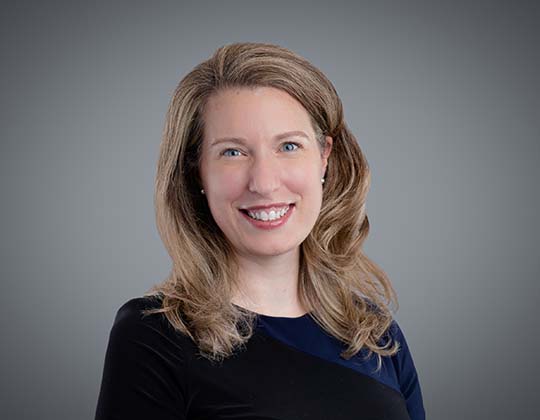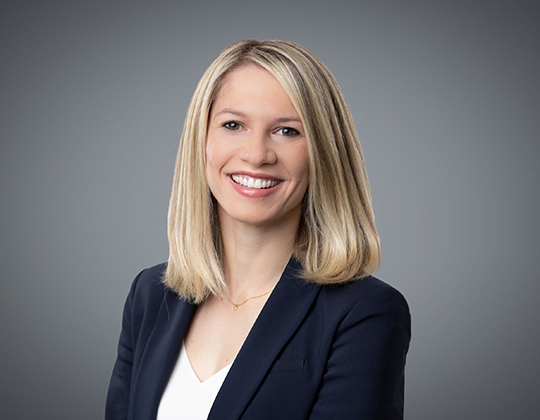Lucy Main, Lori Isaj, and Sanaya Mistry all practice in the area of trusts, estate planning, and estate administration at WeirFoulds LLP in Toronto. Sanaya Mistry interviewed both Lucy Main and Lori Isaj about the nature of their day-to-day estates practice.
Sanaya Mistry: How did you choose or how did you end up in the practice of estate planning?
Lucy Main: I never thought I would be practising in this area. I did take some estates and tax courses in law school. But thought I would be a litigator. Thankfully, I had some real litigation experience as an articling student and quickly determined that I am not meant to be a litigator. I started doing some trust and estate planning work and enjoyed the client facing aspect as well as the challenges of solving unique family situations.
Lori Isaj: Estates practice was not something I had ever considered until well into my articling term. I did not take any trusts, estates, or tax courses in law school so I had no background or sense of the practice. However, I was lucky to article at a firm that had a very impressive estates group. During my articles, I had the opportunity to draft wills and powers of attorney, do legal research, and sit it on initial client meetings and signing meetings. Observing the lawyer-client interactions and the way that the lawyers discussed and handled important but sometimes sensitive or difficult topics, I saw the value of the care and advice and how much clients appreciated this. Very quickly after, I realized that the nature of the practice was well suited to the kind of lawyer I imagined being.
Sanaya Mistry: What do you like most about the estate planning practice?
Lucy Main: I like solving problems. I like the fact that not all solutions are found in law and much of our work involves a lot of non-legal skills. I like feeling that I have really helped a family – either given them peace that all their affairs are in order or helping them through the estate administration process. I like being a trusted advisor to a family.
Lori Isaj: I like working together with clients to help them get peace of mind by getting these key documents in place. For the most part, people appreciate that having a will and powers of attorney is something that everyone should have. However, it can be challenging to get started and to start thinking about the various components and decisions that have to be made. I like interacting with clients, getting to know them, and helping simplify difficult concepts, decisions, or conversations. It’s a great feeling to empower clients with the knowledge and advice and to learn that what they thought would be a difficult process turned out to be a positive and painless one.
Sanaya Mistry: What do you find most challenging about the estate planning practice?
Lucy Main: While the client interactions are often what makes this work fun and meaningful, admittedly sometimes managing the clients is the hardest part of the job.
Lori Isaj: Sometimes it can be challenging to explain that what we do in our practice is so much more than drafting a document. Estates law interacts closely with many other areas of law including family law, tax, corporate, contracts, etc. so we must have all the relevant background information to ensure that we can properly advise on how these other areas can affect a client’s estate plan. Because having the relevant background information and discussing these various issues can take time, it can sometimes be challenging to explain that it’s not often possible to thoroughly complete a client’s estate plan over the course of a single meeting.
Sanaya Mistry: What are your favourite types of files or matters to work on?
Lucy Main: I like client matters where I am able to find a unique solution to an issue. I like especially dealing with international clients, assets, or beneficiaries as I like learning about the succession law of other jurisdictions.
Lori Isaj: My favourite types of files are the ones where clients come into the first meeting with an open mind and with a curiosity and interest about the process. This usually means that I get to have interesting conversations with them and usually means that they have thought of key questions about their unique circumstances. During these meetings, the clients are often grateful for the information and advice which always leaves me with a positive feeling.
Sanaya Mistry: What has been the biggest change to your practice in the last few years?
Lucy Main: The move to a more virtual platform is great in terms of work flexibility but I often miss a lot of the in-person interactions I used to have with clients. Staring at a screen all day and only interacting with clients virtually can be draining.
Lori Isaj: I echo Lucy’s comments in that interacting with clients virtually has been the biggest change. In a lot of ways, this is positive because it allows things to progress more quickly and allows us to interact with clients across a broader geographical scope. However, the downside is that it does not entirely replace the connection and rapport that comes from an in-person interaction.
Sanaya Mistry: What is the best advice you have received about practising law?
Lucy Main: You are going to make mistakes. Learn from them. Use the new knowledge to be better going forward and do not beat yourself up for how you could have done things differently or better in the past. Don’t shy away from opportunities that seem too challenging for fear of making a mistake.
Lori Isaj: It’s important to pick a practice area that you like and that is suited to your skills, interests, character, and personality. It’s important (and rewarding) to get involved, whether it be through practice specific professional organizations, volunteering, or through writing and presenting. Do not hesitate to ask questions and seek help when needed. Regardless of how much experience one has, you will always be learning.
The information and comments herein are for the general information of the reader and are not intended as advice or opinion to be relied upon in relation to any particular circumstances.
This article was originally published on the Ontario Bar Association’s Trusts and Estates Law Section’s articles page.


